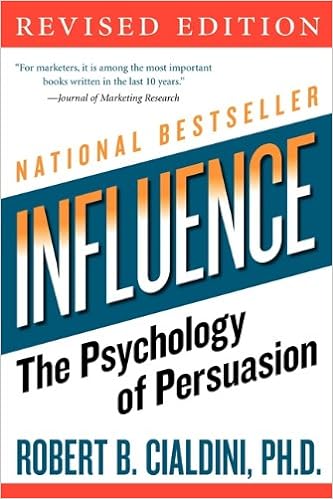You owe me, and we both know it.
In this post, we look at the importance of the reciprocity theory and how it is a vital part to turning thinkers into doers, and converting school leads into sales.
Last week the CEO of Coffeegram, (coffee manufacturer to the stars) came into our office and gave us a tray of coffee pods for free. He knocked on the door, introduced himself and offered:
“I know you have a Nespresso machine and so I wanted to give you a tray of our coffees to sample. No strings, I’d just really like to know how you think they stack up.”
Then an interesting thing happened. The moment I took the tray in hand, I was struck by an overwhelming desire to repay the favour. I instantly knew I *had* to buy some coffees from Coffeegram just to show my appreciation – I hadn’t even tasted them yet. Note, I did not feel ‘trapped’ into repaying the favour, but felt it was my duty. Enter the Reciprocity Theory.
The basic concept to reciprocity theory is that if you do something for someone first, they are more likely to do something (reciprocate) for you. Example, if someone gives you a Christmas card, you suddenly feel compelled to give one in return.
Interestingly, as research by Robert Cialdini discovered, the value of the return favour has no correlation to the value of the original favour, and is quite often, much higher.

A Study in Science
Let’s just roll back a bit here and look at some brief studies into reciprocity.
An American study discovered that when doctors were given a free meal (even of low value), the prescriptions they would immediately thereafter prescribe to patients were better brands and more expensive. They felt subconsciously compelled to provide a better ROI to their employer who had paid for their lunch by advising more expensive drugs be purchased by the patient, when prior to the lunch, cheaper, lesser brands were offered.
More directly, a separate study revealed that when an undercover scientist bought a drink (without asking or being asked) for someone and then asked if the person would buy tickets for a raffle, the person in question would buy many more tickets than the control subject who had not been bought a drink. Interestingly, this was even true when the subject did not particularly like the scientist.
So why are we spending money so readily?
It’s an odd unspoken rule:
“You have done a favour to me, therefore I owe you a favour in return, and more than that, I know that you know I should do a favour in return.” It’s a bit complicated, but it does make sense!
With reciprocity theory in play, it becomes very, very difficult to simply walk away without huge inner turmoil at breaking social conventions and expectations.
So how does this relate to marketing to schools?
In our 8 step customer journey roadmap we talk about the need to offer people high quality, non promotional, free content (Consumption Stage). Following this, we must provide even higher quality, topic related, non promotional gated content (Subscription Stage). It is now a crucial time in that we must encourage the person to engage with our core product, be that through a demo, trial, phone call or similar. So how do we get people over the line? How do we move people from ‘giving us their phone number’ to ‘agreeing to go on (and indeed actually turn up to) a date’?
We rely on the reciprocity theory through triggered automated email communications. You see, when we email a prospect with the gated content, we pull them into an email automation that is completely bespoke for the particular pain point, challenge, goal or aspiration that the gated content tackles.
Within these emails we ALWAYS offer something free – some other unexpected high value information that we know relates to the person’s needs, wants or desires. For instance, if you offer a PDF around the ‘10 proven ways to use current affairs to engage the classroom’, send the prospects an email a day later with a secret 11th tip.
If you have sent cut-out games that can be used in a maths class, send an email that shows how the cut-outs can be used for something else really cool that ‘another school is doing’.
You see, we are bringing in an unexpected favour at this point, offering something we know relates to the prospect’s needs, but we are not asking for anything special in return. We have seen time and time again that this action alone increases general clicks to site, particularly any ‘About Product X’ pages, and means people become far more willing to arrange a call, to take a trial, to actually USE a demo.
Here’s the kicker. Reciprocity content done right has long term effects. The emotional response associated to gaining and returning a favour is all around positive and encourages people to better engage with you or your product. Meaning you can quickly convert leads to customers to brand advocates.
The caveat to all this is the hard push. Have you ever been caught at the traffic lights and someone starts to wash your windscreen then ask for money? Or what about having some heather thrust upon you and been asked for £1? Feels a bit wrong doesn’t it? You might argue that you never pay for these ‘services’. You might even say you have no inner turmoil at all at being given a gift and not returning anything. So why does this sort of thing still occur? Because it works. The gift giver doesn’t care for your long-term affection, they don’t mind if you get angry about being ‘forced’ to take a flower, because they know many people will still return the favour at a much higher value than the cost of the gift (often deposing the gift at the earliest convenience).
But done right, and the reciprocity theory should be your number one go-to strategy to show people that you know your onions, and that you can add great value to customers’ lives.
Oh and Coffeegram? Yeah we bought a huge tray and are pretty much rapidly becoming brand advocates.
If you are not yet using the reciprocity theory in your business, GO DO IT! Look through your email communications, think about what extra value add you can offer to your list, and slot this in before you start to pitch the next stage in your customer journey – a Conversion!

